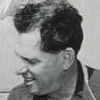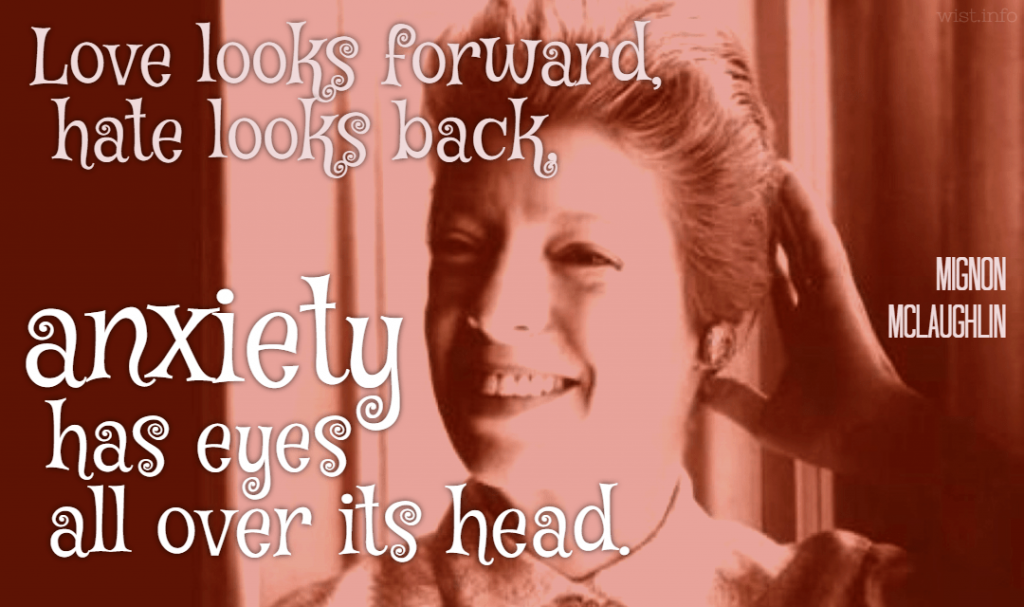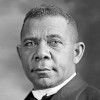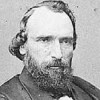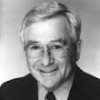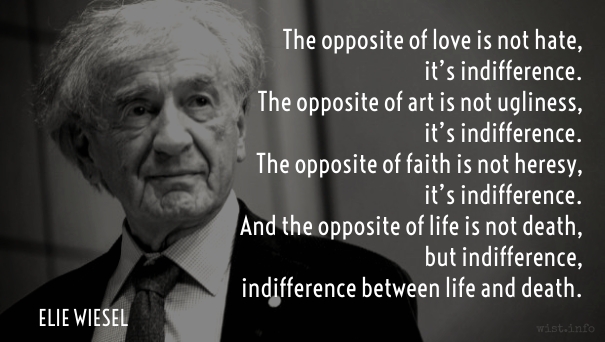Most men know what they hate, few what they love.
Charles Caleb "C. C." Colton (1780-1832) English cleric, writer, aphorist
Lacon: Or, Many Things in Few Words, Vol. 1, § 525 (1820)
(Source)
Quotations about:
hate
Note not all quotations have been tagged, so Search may find additional quotes on this topic.
“I love and hate.” “At once?” you ask, “Now pray explain.”
“I know not how; I feel ’tis so, I’m rent in twain.”[Odi et amo. quare id faciam fortasse requiris
nescio, sed fieri sentio et excrucior.]Catullus (c. 84 BC – c. 54 BC) Latin poet [Gaius Valerius Catullus]
Carmina # 85 [tr. Symons-Jeune (1923)]
(Source)
(Source (Latin)). Alternate translations:Tho' I hate, yet I love! -- you'll perhaps ask me, how?
I can't tell; but I'm vext, and feel that I do.
[tr. Nott (1795), # 82 "On His Love"]I hate and love -- ask why -- I can't explain,
I feel 'tis so, and feel it racking pain.
[tr. Lamb (1821), "On His Own Love"]I hate and love -- wherefore I cannot tell,
But by my tortures know the fact too well.
[tr. T. Martin (1861), "Love's Unreason"]I have and love. "Why do I so?"
Perhaps you ask. I can't explain:
The bitter fact I only know,
And torture racks my brain.
[tr. Cranstoun (1867), "On His Love"]Half I hate, half love. How so? one haply requireth.
Nay, I know not; alas feel it, in agony groan.
[tr. Ellis (1871)]Hate I, and love I. Haps thou'lt ask me wherefore I do so.
Wot I not, yet so I do feeling a torture of pain.
[tr. Burton (1893), "How the Poet Loves"]I hate and I love. Why I do this, perhaps you ask. I know not, but I feel it happening and I am tortured.
[tr. Smithers (1894)]I hate and love. Why I do so, perhaps you ask. I know not, but I feel it, and I am in torment.
[tr. Warre Cornish (1904)]I hate and yet I love; perhaps you ask how this can be. I do not know, but that it is so I feel too well, and live in torment.
[tr. Stuttaford (1912)]I hate and love. You question "How?" I lack
An answer, but I feel it on the rack.
[tr. MacNaghten (1925)]I hate and love, nor can the reason tell;
But that I love and hate I know too well.
[tr. Wright (1926), "Odi et Amo"]I hate and love.
And if you ask me why,
I have no answer, but I discern,
can feel, my senses rooted in eternal torture.
[tr. Gregory (1931)]I hate & love. And if you should ask how I can do both,
I couldn't say; but I feel it, and it shivers me.
[tr. C. Martin (1979)]I hate and love. And why, perhaps you’ll ask.
I don’t know: but I feel, and I’m tormented.
[tr. Kline (2001), "Love-Hate"]I hate and love. You wonder, perhaps, why I'd do that?
I have no idea. I just feel it. I am crucified.
[tr. Green (2005)]I hate and I love. How do I do that, perhaps you ask?
I don't know. But I feel it is happening and I am tormented.
[tr. Wikibooks (2017)]I hate and I love. Why I do this, perhaps you ask.
I do not know, but I feel it being done and I am tormented.
[tr. Wikisource (2018)]I hate and I love: you might ask why I do this --
I don’t know, but I see it happen and it’s killing me.
[tr. @sententique (2023)]I hate, I love; I love, I hate.
But why, you ask again.
I don't know if it's fault, or fate,
This such exquisite pain.
[tr. Hill (2024)]
Well, it is part of our emotional apparatus that we are liable to both love and hate, and we like to exercise them. We love our compatriots and we hate foreigners. Of course, we love our compatriots only when we’re thinking of foreigners. When we’ve forgotten foreigners, we don’t love them so much.
Bertrand Russell (1872-1970) English mathematician and philosopher
Interview by Woodrow Wyatt, BBC TV (1959)
Collected in Bertrand Russell's BBC Interviews (1959) [UK] and Bertrand Russell Speaks His Mind (1960) [US]. Reprinted (abridged) in The Humanist (1982-11/12), and in Russell Society News, #37 (1983-02).
“In society,” M… would say, “you have three sorts of friends: those who love you, those who couldn’t care less about you, and those who hate you.”
«Dans le monde, disait M…, vous avez trois sortes d’amis: vos amis qui vous aiment, vos amis qui ne se soucient pas de vous, et vos amis qui vous haïssent.»
Nicolas Chamfort (1741-1794) French writer, epigrammist (b. Nicolas-Sébastien Roch)
Products of Perfected Civilization [Produits de la Civilisation Perfectionnée], Part 2 “Characters and Anecdotes [Caractères et Anecdotes],” ch. 8 (1795) [tr. Parmée (2003), ¶343]
(Source)
(Source (French)). Alternate translations:“In the world,” remarked some one to me, “you have three kinds of friends: the friends who love you, the friends who do not trouble their heads about you, and the friends who hate you.”
[tr. Hutchinson (1902)]M— said, "In society you have three kinds of friends: your friends who are fond of you, your friends who don’t care either way, and your friends who detest you."
[tr. Merwin (1969)]"In the world," said M..., you have three sorts of friends: the friends who love you; the friends who don't care about you, and the friends who hate you."
[tr. Pearson (1973)]You have three sorts of friend in polite society, M— used to say. Friends who are fond of you; friends who are unconcerned about you; friends who detest you.
[tr. Dusinberre (1992)]"There are three sorts of friends in high society," M— used to say. "Friends who are fond of you, friends who don't care about you, and friends who detest you."
[tr. Dusinberre (1992), "Sampler"]
CREON: A foe, though dead, should as a foe be treated still.
ANTIGONE: My love shall go with them, but not my hate.Κρέων: οὔτοι ποθ᾽ οὑχθρός, οὐδ᾽ ὅταν θάνῃ, φίλος.
Ἀντιγόνη: οὔτοι συνέχθειν, ἀλλὰ συμφιλεῖν ἔφυν.Sophocles (496-406 BC) Greek tragic playwright
Antigone, l. 522ff (441 BC) [tr. Werner (1892)]
(Source)
Original Greek. Alt. trans.:KREON: The foe is ne'er a friend -- not e'en in death.
ANTIGONE: My heart is love's co-mate, not hatred's partner.
[tr. Donaldson (1848)]CREON: Not even death can make a foe a friend.
ANTIGONE: My nature is for mutual love, not hate.
[tr. Storr (1859)]CREON: You do not love someone you have hated, not even after death.
ANTIGONE: It is not my nature to join in hate, but in love.
[tr. Jebb (1891)]CREON: A foe is never a friend -- not even in death.
ANTIGONE: 'Tis not my nature to join in hating, but in loving.
[tr. Jebb (1917)]CREON: An enemy is an enemy, even dead.
ANTIGONE: It is may nature to join in love, not hate.
[tr. Fitts/Fitzgerald (1939)]CREON: An enemy can't be a friend, even when dead.
ANTIGONE: My way is to share my love, not share my hate.
[tr. Watling (1947), ll. 441-42]CREON: No enemy will become a friend in the Underworld.
ANTIGONE: I am for sharing love, not hatred.
[tr. Theodoridis (2004)]CREON: An enemy
can never be a friend, not even in death.
ANTIGONE: But my nature is to love. I cannot hate.
[tr. Johnston (2005), ll. 596-98]CREON: An enemy is not a friend, even when dead.
ANTIGONE: I cannot share their hate, only their love.
[tr. Thomas]
And I say to you, I have also decided to stick to love. For I know that love is ultimately the only answer to mankind’s problems. […] And I have seen too much hate. I’ve seen too much hate on the faces of sheriffs in the South. I’ve seen hate on the faces of too many Klansmen and too many White Citizens Councilors in the South to want to hate myself, because every time I see it, I know that it does something to their faces and their personalities and I say to myself that hate is too great a burden to bear.
Martin Luther King, Jr. (1929-1968) American clergyman, civil rights leader, social activist, preacher
“Where Do We Go From Here?” Southern Christian Leadership Conference Presidential Address (16 Aug 1967)
(Source)
We are the most unfair, not towards him whom we do not like, but toward him for whom we feel nothing at all.
Friedrich Nietzsche (1844-1900) German philosopher and poet
Thus Spoke Zarathustra [Also Sprach Zarathustra], Part 2, “Of the Compassionate [Von den Mitleidigen]” (1892) [tr. Hollingdale (1961)]
(Source)
DEXTER: Every day, here and at home, we are warned about the enemy. But who is the enemy? Is it the alien? Well, we are all alien to one another. Is it the one who believes differently than we do? No, oh no, my friends. The enemy is fear. The enemy is ignorance. The enemy is the one who tells you that you must hate that which is different. Because, in the end, that hate will turn on you. And that same hate will destroy you.
NEMO: What you fail to understand is the power of hate. It can fill the heart as surely as love can.
Earl Felton (1909-1972) American screenwriter
20,000 Leagues Under the Sea, screenplay (1954) [with Richard Fleischer]
(Source)
Explaining his campaign on wagers of war. Based on the novel by Jules Verne (1870). The words are not in the novel.
There are very few historical characters who are alive enough to be hated.
William Ralph Inge (1860-1954) English prelate [Dean Inge]
“St. Paul” (1914), Outspoken Essays: First Series (1914)
(Source)
Malice is of a low Stature, but it hath very long Arms.
George Savile, Marquis of Halifax (1633-1695) English politician and essayist
“Of Malice and Envy,” Political, Moral, and Miscellaneous Thoughts and Reflections (1750)
(Source)
Love looks forward, hate looks back, anxiety has eyes all over its head.
Mignon McLaughlin (1913-1983) American journalist and author
The Neurotic’s Notebook, ch. 1 (1963)
(Source)
This is no day for the rabble-rouser, whether he be Negro or white. We must realize that we are grappling with the most weighty social problem of this nation, and in grappling with such a complex problem there is no place for misguided emotionalism. We must work passionately and unrelentingly for the goal of freedom, but we must be sure that our hands are clean in the struggle. We must never struggle with falsehood, hate, or malice. We must never become bitter. I know how we feel sometime. There is the danger that those of us who have been forced so long to stand amid the tragic midnight of oppression—those of us who have been trampled over, those of us who have been kicked about — there is the danger that we will become bitter. But if we will become bitter and indulge in hate campaigns, the new order which is emerging will be nothing but a duplication of the old order.
Martin Luther King, Jr. (1929-1968) American clergyman, civil rights leader, social activist, preacher
“Give Us the Ballot,” Speech, Prayer Pilgrimage for Freedom, Washington, DC (1957)
(Source)
We must meet hate with love. We must meet physical force with soul force. There is still a voice crying out through the vista of time, saying: “Love your enemies , bless them that curse you, pray for them that despitefully use you.” Then, and only then, can you matriculate into the university of eternal life. That same voice cries out in terms lifted to cosmic proportions: “He who lives by the sword will perish by the sword.” And history is replete with the bleached bones of nations that failed to follow this command. We must follow nonviolence and love.
Martin Luther King, Jr. (1929-1968) American clergyman, civil rights leader, social activist, preacher
“Give Us the Ballot,” Speech, Prayer Pilgrimage for Freedom, Washington, DC (1957)
(Source)
I would permit no man, no matter what his colour might be, to narrow and degrade my soul by making me hate him.
Booker T. Washington (1856-1915) American educator, writer
Up from Slavery, ch. 11 (1901)
(Source)
This has been paraphrased in various ways, and is the source of Martin Luther King, Jr's quote he attributed to Washington: "Let no man pull you so low as to make you hate him" (e.g., Stride Toward Freedom, ch. 6 (1958)). King used this or variants of this paraphrase frequently in his speeches, though it was only in his early activism that he referenced Washington by name.
There is only one way of not hating those who do us wrong, and that is by doing them good.
Henri-Frédéric Amiel (1821-1881) Swiss philosopher, poet, critic
Journal (27 Nov 1880) [tr. Ward (1887)]
See Matthew.
Hatred is a banquet until you recognize you are the main course.
Herbert Benson (b. 1935) American doctor, cardiologist, mind-body researcher
In “Forgive and your health won’t forget,” Christian Science Monitor (19 Dec 2002)
(Source)
The correlative to loving our neighbors as ourselves is hating ourselves as we hate our neighbors.
John F. Kennedy was the victim of the hate that was a part of our country. It is a disease that occupies the minds of the few but brings danger to the many.
Lyndon B. Johnson (1908-1973) American politician, educator, US President (1963-69)
Speech (1964-05-09), Dedication of the John F. Kennedy Cultural Center, Mitchell Field, New York
(Source)
Indifference, to me, is the epitome of evil.
The opposite of love is not hate, it’s indifference.
The opposite of art is not ugliness, it’s indifference.
The opposite of faith is not heresy, it’s indifference.
And the opposite of life is not death, but indifference,
indifference between life and death.Elie Wiesel (1928-2016) Romanian-American novelist, professor, political activist, Nobel Laureate.
“One Must Not Forget,” interview by Alvin P. Sanoff, US News & World Report (27 Oct 1986)
See also Nietzsche.
If we hate ourselves, we can never love others, for love is the gift of oneself. How will you make a gift of that which you hate?
William Sloane Coffin, Jr. (1924-2006) American minister, social activist
Credo, “Faith, Hope, Love” (2004)
(Source)
Why is propaganda so much more successful when it stirs up hatred than when it tries to stir up friendly feeling?
Bertrand Russell (1872-1970) English mathematician and philosopher
Conquest of Happiness, Part 1, ch. 6 “Envy” (1930)
(Source)
True, we have to hate evil; else we’re sentimental. But if we hate evil more than we love the good, we become damn good haters, and of those the world already has too many.
William Sloane Coffin, Jr. (1924-2006) American minister, social activist
Credo, “Faith, Hope, and Love” (2004)
(Source)
Hate is not the opposite of love; apathy is.









